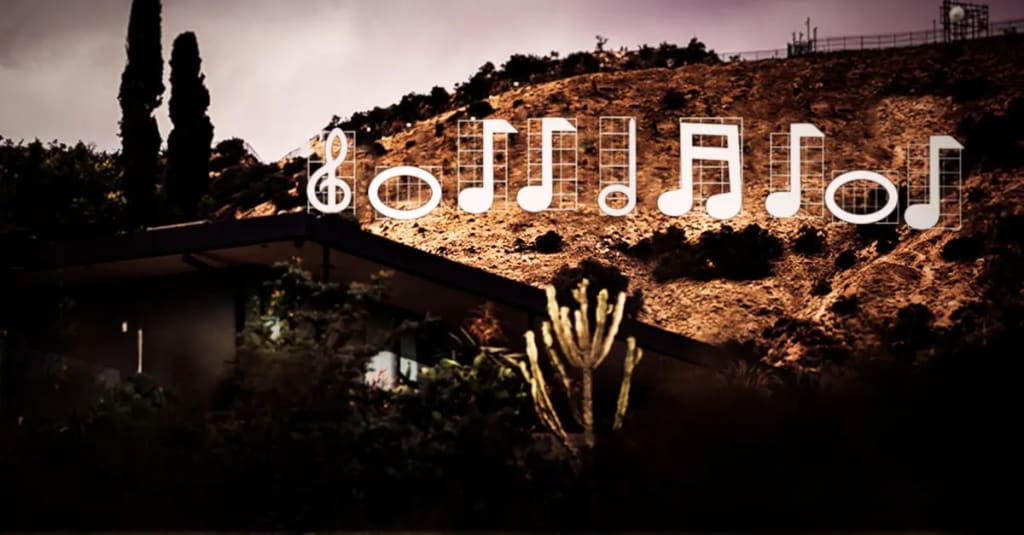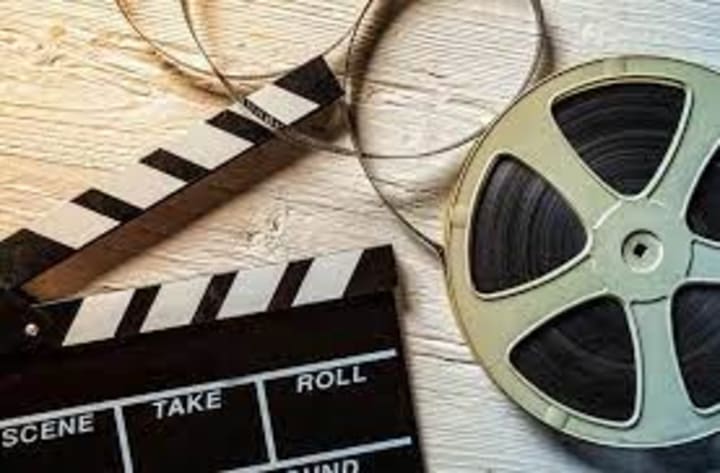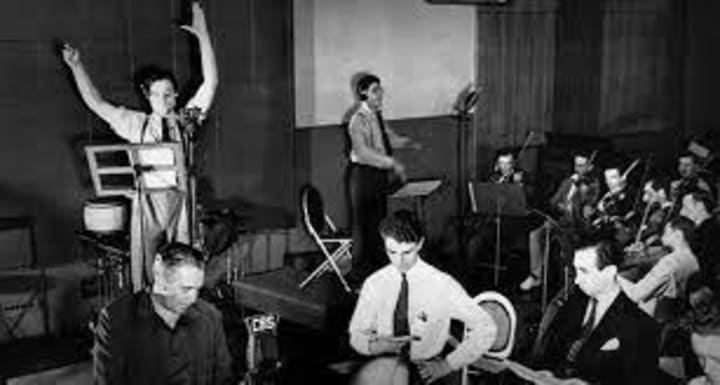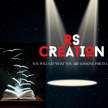Music in Film Scoring
The Role of Music in Enhancing Visual Storytelling

Introduction

Film music has been an integral part of the movie-going experience for over a century. From the silent film era to modern blockbusters, music has played a crucial role in enhancing visual storytelling. The art of film scoring involves composing music that enhances the emotional impact of a film and helps to tell the story. In this article, we will explore the role of music in film, how it is used to enhance visual storytelling, and the process of creating a film score.
History of Film Music

The history of film music dates back to the silent film era. In the early days of cinema, films were shown without sound, and musical accompaniment was provided by live musicians in the theater. This music was often improvised, and musicians were expected to match the mood and tempo of the film. As sound technology improved, films began to feature recorded music and dialogue.
In the 1930s and 1940s, Hollywood films began to feature more complex musical scores. Composers such as Max Steiner and Bernard Herrmann created scores that were an integral part of the film. These scores were not just background music, but were designed to enhance the emotional impact of the film.
The 1950s and 1960s saw the rise of the film composer as a celebrity. Composers such as Ennio Morricone and John Williams created iconic scores for films such as The Good, the Bad and the Ugly and Star Wars. In the 1970s and 1980s, synthesizers became popular in film music, and composers such as Vangelis and Tangerine Dream created electronic scores for films such as Blade Runner and Risky Business.
Today, film scores are an essential part of the movie-going experience. Composers such as Hans Zimmer, Alexandre Desplat, and John Powell continue to create memorable scores that enhance the emotional impact of films.
The Role of Music in Film

Music plays several essential roles in the film. It can establish the mood and tone of a scene, create tension and suspense, and provide emotional cues to the audience. Music can also help to reinforce the narrative and character arcs in a film.
• Establishing the Mood and Tone of a Scene
One of the most important roles of music in film is to establish the mood and tone of a scene. For example, a scene with romantic undertones might feature a soft, gentle melody, while a scene with action and adventure might feature a fast-paced, exciting score. The music sets the tone for the scene and helps to guide the audience's emotional response.
• Creating Tension and Suspense
Music can also be used to create tension and suspense in a film. For example, a horror film might feature a score that is dark and ominous, with low strings and dissonant chords. The music builds tension and creates a sense of unease in the audience.
• Providing Emotional Cues
Music can provide emotional cues to the audience, helping them to understand the emotional state of the characters. For example, a sad scene might feature a slow, mournful melody, while a happy scene might feature an upbeat, cheerful score. The music can help to reinforce the emotional impact of the scene and make it more memorable.
• Reinforcing the Narrative and Character Arcs
Music can also be used to reinforce the narrative and character arcs in a film. For example, a character's theme might be introduced early in the film and then developed and transformed as the character goes through changes. The music can help to reinforce the character's emotional journey and make it more impactful.
• The Process of Creating a Film Score
Creating a film score is a complex and collaborative process that involves the composer, the director, and the film editor. The process typically begins with the composer viewing an early cut of the film and discussing the director
The composer will typically work closely with the director to understand the emotional tone and themes of the film. They may also discuss specific musical ideas or styles that the director would like to incorporate into the score. Once the composer has a good understanding of the film, they will begin to write the music.
The first step in writing the music is often to create a "temp track." This is a temporary score that is created by the film editor using existing music from other sources. The temp track is used to give the composer an idea of the pacing and emotional tone of each scene in the film. The composer will then use the temp track as a reference when creating the final score.
Once the composer has written the initial sketches for the score, they will typically meet with the director to review the music. The director will provide feedback on the music, and the composer will make revisions as needed. This process may continue throughout the post-production phase of the film, as the music is refined and integrated into the final cut.
The final step in the process is to record the music with a live orchestra or ensemble. This can be a time-consuming and expensive process, but it is essential to create the rich and dynamic sound that is needed for a film score. Once the music is recorded, it is edited and mixed with the dialogue and sound effects to create the final soundtrack.
Conclusion
Film scoring is a complex and collaborative process that plays a crucial role in enhancing visual storytelling. Music can set the mood and tone of a scene, create tension and suspense, provide emotional cues to the audience, and reinforce the narrative and character arcs in a film. The process of creating a film score involves close collaboration between the composer, the director, and the film editor, and it can take many months to complete. Despite the challenges involved, the art of film scoring continues to evolve and thrive, creating unforgettable movie moments that stay with audiences long after the credits roll.
About the Creator
RS Creation
Search makes a person perfect, and in today's modern technology world, new information is learned through search.
He is created as a man. I am happy to share with you the many information that I have read and learned through my search.






Comments
There are no comments for this story
Be the first to respond and start the conversation.